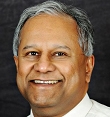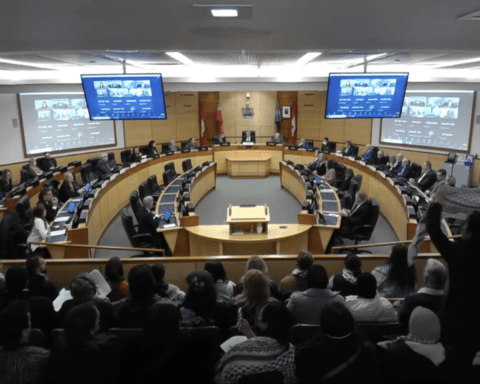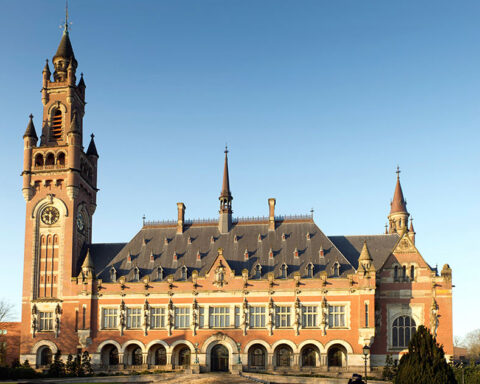With the world at large impassive in its reaction to the Egyptian military’s ouster of President Mohammed Morsi, the diametrically opposite responses from Syria and Turkey are perhaps the most telling.
Syria’s President Bashar Assad has praised the massive protests against the Islamist Muslim Brotherhood and said it means the end of political Islam. In an interview with the state-run Al-Thawra newspaper, Assad said his opponents at home failed because they tried to bring religion onto the battlefield. “Whoever brings religion to use for political or factional interests will fall anywhere in the world.”
“It is unacceptable for a government that has come to power through democratic elections to be toppled through illicit means and, even more, a military coup,” said Turkish Foreign Minister Ahmet Davutoglu. This strong reaction was to be expected as Turkey’s ruling Justice and Development Party (AKP) is the model for Mr. Morsi’s Brotherhood-affiliated Freedom and Justice Party.
For the record, Canadian Foreign Affairs Minister John Baird has urged all parties in Egypt to remain calm, avoid violence and engage in meaningful political dialogue. “This is important not only for Egypt, but, given Egypt’s influence, for the whole region as well,” Baird said.
While Assad has reasons to be antagonistic against Islamists as they spearhead the fight against him, his diagnosis may only be partially true: what we are seeing is not the end of political Islam but a likely end to Islamists engaging in electoral politics.
Winning elections
The message out there among Islamists is that winning elections does not seem to benefit them and Egypt is only the latest in a string of bitter lessons.
In 1991, Algeria’s Islamic Salvation Front won the first round of parliamentary elections only to be blocked from power when the president, under pressure from the military, dissolved parliament and annulled the vote. What followed was a decade of civil war in which more than 250,000 people lost their lives. That insurgency is still alive in the Sahara today and Canadians were reminded of it when four fellow citizens were linked to a deadly attack on an Algerian gas plant that killed dozens in January of this year.
Analogous to the Algerian fiasco, in 2006 when the Islamist Hamas won elections in Palestine, it was ostracized by the U.S., Canada and some other countries because of the position it took against Israel.
The Ennahda party, that won the 2011 elections in Tunisia after the first revolution of the Arab Spring, seems to have bucked the trend thanks to sharing power with non-Islamist parties. That lesson seems to have been lost on fellow Islamist parties elsewhere. Winner takes it all seems to be their mind-set.
It was in evidence when Turkish Prime Minister Recep Tayyip Erdogan railed against the recent protests in Istanbul’s Taksim square. Mr. Erdogan referred to his electoral victories and his parliamentary majority as a license to carry out policies as he saw fit. The more reconciliatory President Abdullah Gul had to point out that true democracy “does not only mean elections.”
This attitude of Islamists toward power gained through the ballot must be seen in the light of debates won within their circles on the superiority of electoral politics over violence.
When the so-called Arab Spring movements in Tunisia and Egypt brought to power elected Islamist parties, it was a serious blow to al-Qaeda and the jihadists. It showed the world that political Islam’s compatibility with electoral democracy need not be confined only to Turkey in the Middle East.
Failed experiment
That experiment is at risk with the fall of Mr Morsi, Egypt’s first freely elected leader. Analysts, like those at the US-based Stratfor Global Intelligence group, say the Muslim Brotherhood will probably not respond violently but may engage in civil unrest leading to violence. However, they fear that elements from ultraconservative Salafist groups would abandon mainstream politics in favor of armed conflict.
The ground for that is already being laid. Hundreds of Egyptians are in Syria fighting alongside Islamist rebels against Assad’s forces. And at home in the Sinai desert, jihadist groups have taken advantage of the chaos of the past few years to build themselves up.
The Syrian president’s optimistic prediction of the end of political Islam may not come to pass soon. A cornered foe can always lash out with unpredictable results.- New Canadian Media
Ranjit is a Toronto-based writer with interest in Canadian civic affairs, immigration, the environment and motoring. Maytree and Al Jazzera English alumnus.





